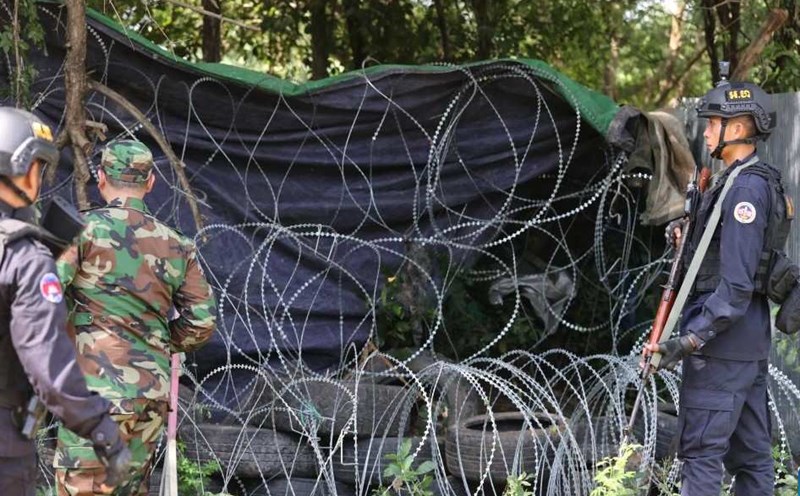From today's green shoots to sustainable future
In the Bach Long Vi special zone (Hai Phong), Mr. Tran Tri Trang's family has begun to get used to classifying waste at source - something that was almost unfamiliar to him before.
Previously, household waste was collected together and buried. Now there are 3 compartments of trash bins, the whole practice house separates organic, recyclable and remaining waste. A little more work, but in return it can be reused, the environment is also cleaner," Mr. Trang shared.
Previously, due to the island's isolated geography, garbage was mainly buried manually. "A bottle can still be sold, but a nylon bag and leftover food can be poured together and burned or buried," said Mr. Vu Minh Thuan - a resident of residential area No. 2.
A survey by the Hanoi University of Culture delegation shows that most of the garbage is not classified, many components are difficult to decompose such as batteries, plastic, oil... threatening domestic water sources. With the message "Sorting today - Clean tomorrow's islands", volunteers crossed the wave to bring 3 trash bins for sorting and 10 sets of organic waste to the people.

In Long Phieng commune (Son La), Ms. Bui Thi Dieu Linh - Deputy Secretary of the Youth Union of the University of Education (Vietnam National University, Hanoi) - said that people's household waste is often burned haphazardly in old containers, causing pollution and the risk of fire and explosion.
"We organized a 2-day training course, instructed on how to classify and clean up trash around the school with the people. When witnessing the change after a few hours of work, people began to clearly understand the value of a clean environment, said Ms. Linh.
In Tan My commune (Tuyen Quang), 100 trash bins were donated to help people reduce littering. Mr. Hoang Tran Trung - Secretary of the Commune Party Committee - said: "Previously, garbage was treated in pieces, causing pollution and loss of aesthetics. Thanks to the support of the Green Future Fund, the model of classifying and treating organic waste using microorganisms has been effectively implemented.
Community awareness has also changed significantly. Many households have begun to classify waste. In particular, the young generation and women responded very positively. The focus is on training to help people understand and change their behavior, turning waste classification into a lifestyle, Mr. Trung affirmed.

Fund for Green Future: A bridge for youth to spread everywhere
The Green Summer 2025 campaign, with the support of the Green Future Fund, is being implemented at 33 universities and units across the country. Not only donating materials, the campaign also sows "green seeds" in awareness, creating long-term changes.
In Bach Long Vi, Mr. Vu Minh Thuan - who has witnessed many changes on the island - was moved: "Thanks to the program, people are more aware and the island is more beautiful every day. I believe that the next generation will be able to live in a cleaner environment.
In Tan My, the waste classification model is being replicated through self-management groups and groups of propagandists in each village. "If implemented regularly and long-term, the quality of life will certainly be improved, the environment will be clean, and agricultural products will also be more sustainable," said Mr. Trung.
From small trash bins placed on remote islands or remote villages, the Green Summer soldiers not only spread the habit of green living, but are also quietly nurturing a generation that knows how to live responsibly with the environment and the community. That journey may start with waste, but the destination is a sustainable future - where people and nature develop harmoniously together.
The Green Future Fund not only provides material support, but is also a bridge for youth to spread everywhere. With the support of the Fund, we have laid the first brick to build a green lifestyle for the community, for the future, affirmed Mr. Tran Chieu Phung - Deputy Secretary of the Hanoi University of Culture Youth Union.











